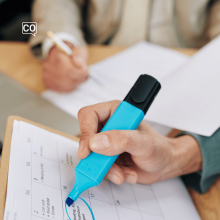Quedar (to meet) - Futuro perfecto, indicativo (Future Perfect, indicative) - Spanish

Quedar - Conjugation of to meet in Spanish: Conjugation table, examples and exercises in the future perfect, indicative tense (Futuro perfecto, indicativo).
Futuro perfecto, indicativo (Future Perfect, indicative)
All conjugations and tenses: Quedar (to meet) - conjugation and tenses - (Spanish)
Syllabus: Spanish lesson - Días de la semana y partes del día. (Days of the week and parts of the day)
Conjugation of to meet in Futuro perfecto
- yo habré quedado I will have met
- tú habrás quedado you will have met
- él/ella habrá quedado he will have met
- nosotros/nosotras habremos quedado we will have met
- vosotros/vosotras habréis quedado you will have met
- ellos/ellas habrán quedado They will have met
Example phrases
- Para entonces, yo habré quedado en la estación. By then, I will have stayed at the station.
- Tú habrás quedado con los amigos antes de la cena. You will have met with friends before dinner.
- Él habrá quedado sorprendido por la noticia. He will have been surprised by the news.
- Nosotros habremos quedado en el parque antes de que oscurezca. We will have met in the park before it gets dark.
- Vosotros habréis quedado en el café para discutir el proyecto. You will have met at the café to discuss the project.
- Ellos habrán quedado en la oficina después del trabajo. They will have met in the office after work.
Exercise: Conjugate the verbs - quedar (to meet)
Instruction: Choose the correct word, read the sentence out loud and translate.
Show answers Show translationQuedar (Futuro perfecto, indicativo)
1. Tú ... con los amigos antes de la cena.
2. Ellos ... en la oficina después del trabajo.
3. Vosotros ... en el café para discutir el proyecto.
4. Para entonces, yo ... en la estación.
5. Él ... sorprendido por la noticia.
6. Nosotros ... en el parque antes de que oscurezca.